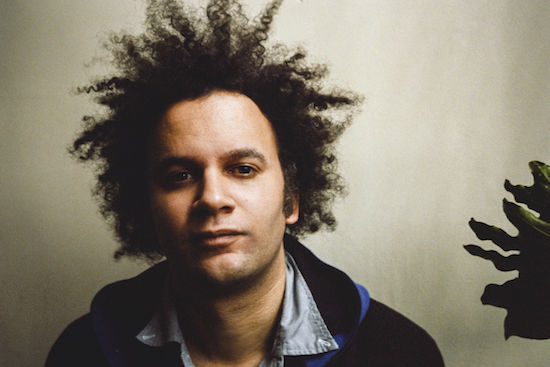Although Battles have released three albums since Tyondai Braxton’s departure, it would be difficult to picture the band having formed without him. Neither in turn, for that matter, the development of his eventual solo output. The underlying rock band setup of Battles would eventually prove to conflict with Braxton’s experimental inclinations, and Braxton left in 2010 before the band’s second album Gloss Drop. Originally a shock decision, in retrospect Braxton’s departure makes sense; with his new solo ambitions lacking most residual signs of his previous Battles role as singer and guitarist. His debut Central Market still retains the band’s attuned sense of melody and chord progression, while showing a more expansive, less rock-oriented range of instrumentation. And what Braxton admires in other peoples’ work is applicable to his own, that which he feels unable to place in systems or rules; on HIVE1 his ‘sound objects’ seem describable only in some loose, pseudo-synaesthetic manner. It’s strangely intuitive to refer to individual sounds as having ‘texture’ but Braxton takes this further, exploring holistically the relations between different manipulated sounds which form a piece, usually here as a kind of ‘tuned’ synthesised percussion. In conversation, it’s clear that Braxton’s appreciation for his favourite artists is not entirely on the basis of whether it’s ‘clever’ in a subversive sense, as he also enjoys the playfulness, intuitiveness and distorted thought processes through which they compose.
Tyondai Braxton plays alongside Daniel Lanois, Nosaj Thing and Dawn Of Midi at KOKO for Convergence Festival on 22nd March 2017 before touring with Dawn Of Midi. For tickets and information visit the Convergence website and for the rest of the UK tour the SoundUK website. Click the image below to read the 13 selections


